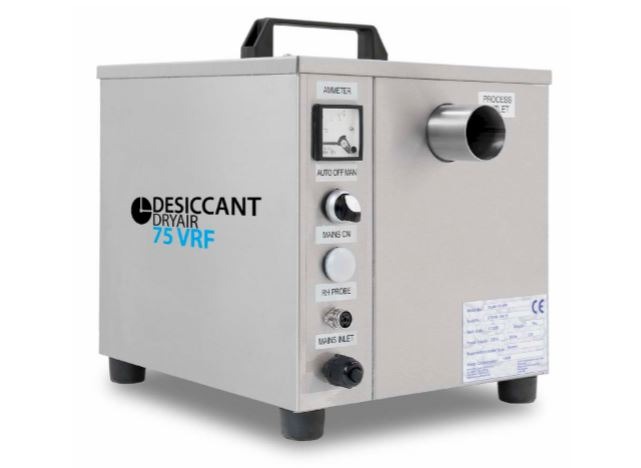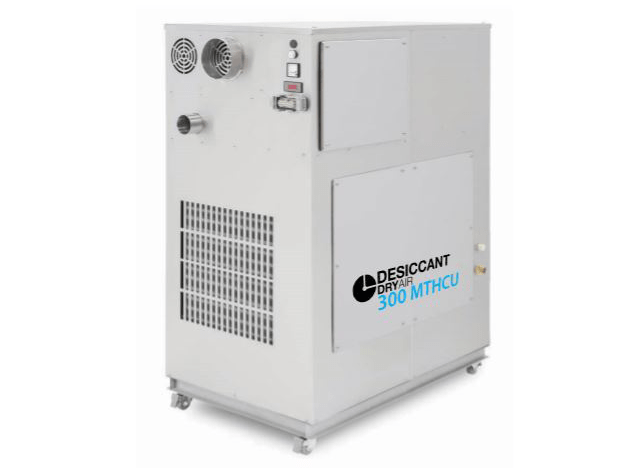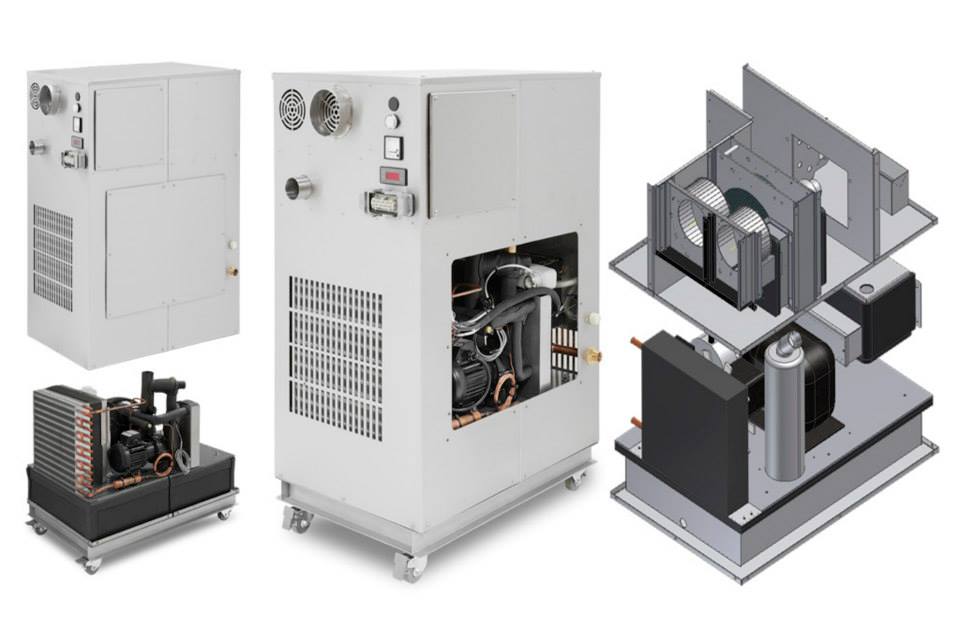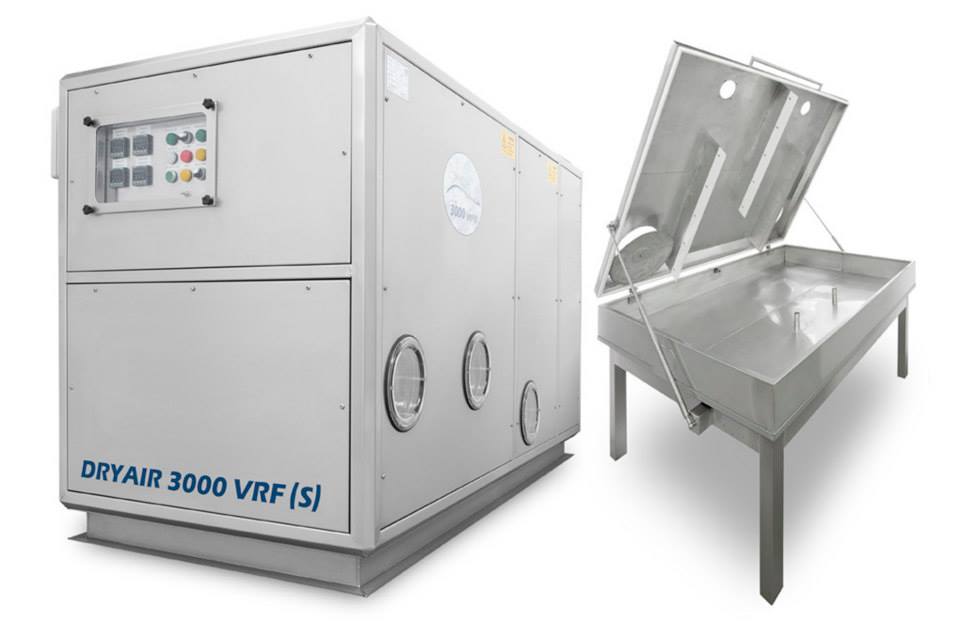Military
Humidity Control For the Military
How We Can Help The Military Industry?
Army equipment
The storage of military equipment forms a major part of the logistics required to maintain a frontline Army.
The equipment required to keep an Army at a state of readiness can be any of the following:
- Uniforms, clothing and textiles.
- Medicines, documentation and packaging.
- Rifles, artillery pieces, weaponry.
- Ammunition, small arms, artillery and heavy weaponry.
- Electronics, surveillance and listening equipment.
- Scopes.
- Vehicles, aircraft to complete ships.
- Spare parts to keep them operational.
The military have to store large reserves due to required rapid response and the long lead times associated with manufacturing. Storing this wide range of commodities means providing the best environment for a state of readiness, effectiveness and accountability to the tax payer.
Controlled Humidity Environments
Moisture in the form of Humidity, although not seen by the naked eye, causes issues for all stored equipment. Problems associated with storage are as follows:
Uniforms, Clothing and Textiles
Mould and mildew will occur if either food or oxygen are present. Boxed textiles due to the lack of air movement will hold moisture in the form of a vapour (humidity). This will continue to increase especially in winter when stored in un-heated warehouses. The solution is to remove one of the two elements required to feed the fungus, either remove the oxygen or the humidity. At Desiccant Dryair we can control the humidity in any building of any size. The desired level of control for textiles is 65% RH or lower and the use of a Desiccant Dehumidifier will directly control humidity by removal of the moisture. It is a much cheaper option to run than the indirect method of heating a building by approximately 11.0 °C all year round.
Medicines, Documentation and Packaging
Normally sealed, the product is not affected, but the packaging is in the same way as the textiles. We can control the damage occurring to packaging by simply controlling the humidity to less than 60%RH.
Rifles, Artillery Pieces, Weaponry
Humidity affects the corrosion on un-oiled surfaces. If corrosion is not detected, rifle bores will become pitted and unusable. By controlling the humidity to less than 50% RH corrosion is minimised. A scientist called Vernon discovered that corrosion in steel accelerates rapidly after 55% RH. This is called Vernon’s curve. If the humidity is controlled to less than 40% RH, the corrosion in steel is eliminated.
Ammunition, Small Arms, Artillery and Heavy Weaponry
Ammunition is manufactured with dissimilar metals; the casing often being brass and the projectile being heavier steel. Galvanic corrosion is an electrochemical process in which one metal corrodes preferentially to another when both metals are in electrical contact in the presence of an electrolyte, this being moisture in the form of humidity. This same galvanic reaction is exploited in primary batteries to generate an electrical voltage. We can cure this by simply removing the electrolyte (humidity) to a controllable level. This depends on the materials, for example aluminium and alloys are lower than steel. A guide would be to store the ammunition in controlled humidity of less than 40% RH.
Electronics, Surveillance and Listening Equipment
Very similar problems to the above. Galvanic reactions occur on circuit boards due to dissimilar metals and the solder used to connect the component to the copper foil in the circuit board. This causes large amounts of component failure in radios, surveillance and listening equipment. Very similar to storage of ammunition, to maintain less than 40% RH would be ideal as this would prevent the electrolyte being present causing the oxidisation as one metal corrodes much faster. It is however important that the humidity is not allowed to drop too much. Static electricity will build up on electronics and circuit boards and this may damage sensitive circuits and components. This may require full climate control depending on the geographical location of the storage facility. At Desiccant Dryair we specialise in building units to any temperature and humidity set points with very close control.
Scopes
Many pieces of Military equipment use scopes from small arms to heavy artillery, MBT’s to night vision scopes. Moisture ingress will eventually occur but this can be reduced if stored correctly in a CHE environment. When a scope requires repairing, the clean room will need to be less that 25% RH to eliminate condensation forming during cold conditions and the air sealed inside hitting dew point. We provided a clean room for the repair of Scopes for the Singapore Armed forces in Singapore. This was very successful and achieved using a Dryair 2500 VRF with post cooling coil to give 18.0 °C @ 25% RH.
Vehicles, Aircraft to Complete Ships
This is an area that more armies are adopting into their standard routine.
Vehicles
Both, light and armoured, are manufactured using many different materials, all of which will have a specific level of RH to slow or stop corrosion. They will degrade rapidly due to humidity as it affects the wiring, electronics and causes galvanic reactions between dissimilar metals. We have a great deal of experience in providing Controlled Humidity Environments (CHE) to many Armies around the Globe. Vehicles should be stored with either open or closed CHE. It is important to obtain a happy medium and we would normally recommend less than 50% RH to reduce the corrosion level or less than 40% to stop the corrosion in steel which is the main component in many vehicles. Please download from our website a PDF file on CHE for more information on Open and Closed CHE options and benefits.
Aircraft
Aircraft normally require dry air during periods on standby, while the aircraft is on the PAN/HAZ or while undergoing long periods of maintenance. Dry air is used to prevent condensation forming on delicate components causing damage due to corrosion.
Open CHE
The aircraft will have dry air blown into the cockpit, fuselage and engines to prevent any condensation from forming. Normally a relatively small mobile unit is required.
Closed CHE
While aircraft are under an extensive strip down or routine maintenance, condensation can occur due to the cooling effect of the materials in instruments, electronics and wiring. In this condition closed CHE would be used, the whole building would be controlled at a specific level to ensure the complete aircraft and components are protected.
Ships and Submarines
Very similar problems to vehicle storage. Due to the mass of the ship, the climate inside can take days to acclimatise to a drop in ambient conditions. This will cause the air in contact with a cold surface to hit dew point forming condensation. Electronics and instrumentation will also be affected. Ships are moth balled when not in use for long periods of time. Dryair units are used by the Royal Navy to prevent condensation forming when ships are in storage. The conditions are to be less than 40%RH.
Spare parts to keep them operational.
All tri services require vast amounts of spares to keep them operational. The shelf life of spares from ammunition to consumables can be greatly extended with the use of a Desiccant Dryair dehumidifier. They can offer the following:
• Manufactured in Great Britain in stainless steel as standard.
• Many different models to suit different applications from standard to complete climate control units.
• Highest quality as standard.
• Low running costs, fully modulating.
• PLC controllability, networking and BMS interface available.
• Very efficient.
• Small footprint
Vertical Rotor Face Machines
We have a range of Vertical Rotor Face Machines (VRF) available, find the right machine to suit your needs. if you require help or advice please contact us by calling us on +44 01524 581500 or email us info@desiccantdryair.com
MTHC Units
We have a range of Medium Temperature & Humidity Control Units (MTHCU) available, find the right unit to suit your needs. if you require help or advice please contact us by calling us on +44 01524 581500 or email us info@desiccantdryair.com
Contact Us
Today!
Desiccant DryAir Systems Ltd.
6 Langdale Business Park
Whitegate White Lund Industrial Estate
Morecambe
Lancashire
United Kingdom
LA3 3BS
Contact us
Phone: (+44) 01524 581500
Alternative phone: (+44) 01524 581450
Mail: info@desiccantdryair.com
© 1996-2020 DESICCANT DRYAIR | LEGAL DOCUMENTS | SITEMAP
phone: (+44) 01524 581500
alternative phone: (+44) 01524 581450
info@desiccantdryair.com




